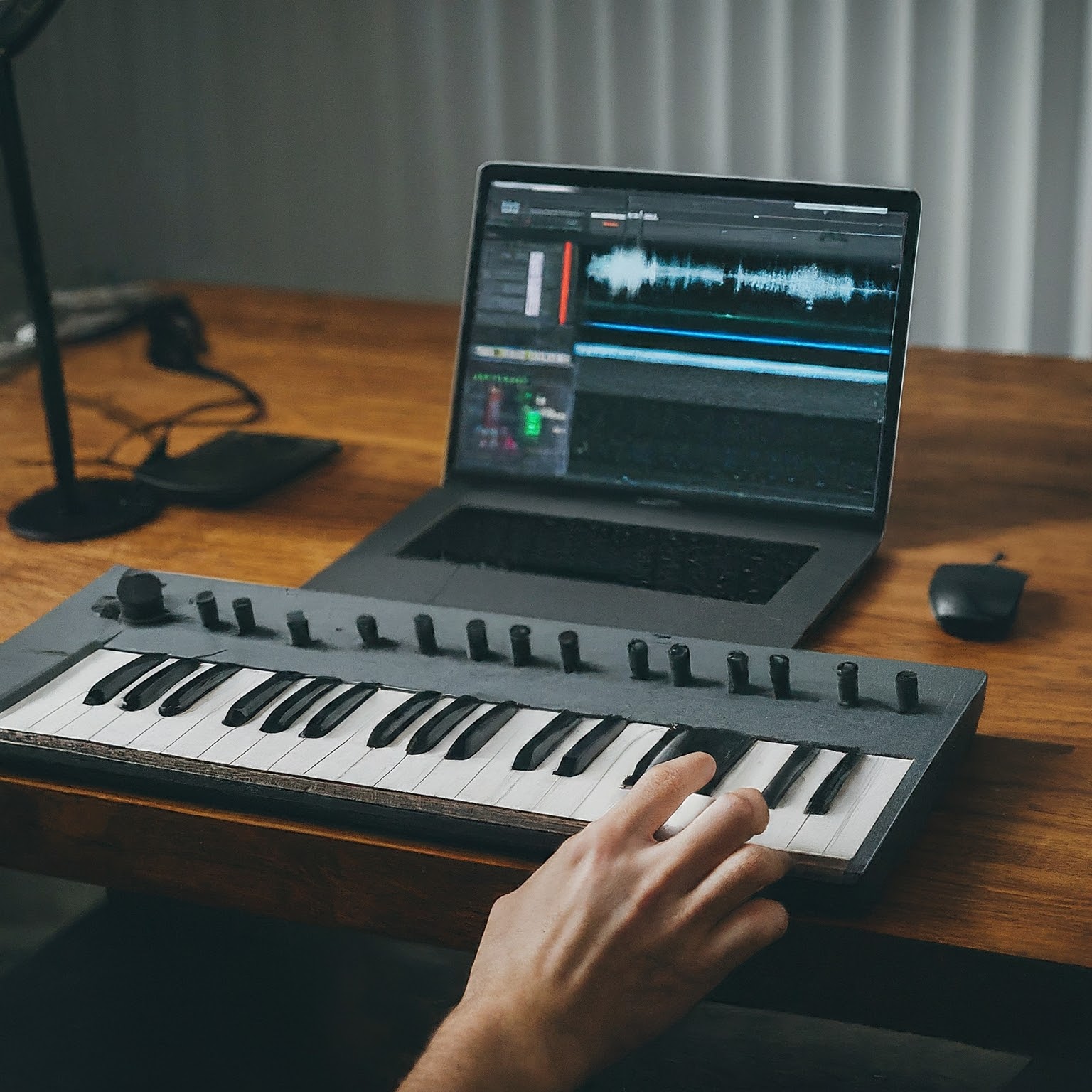
Forget writer's block! Did you know AI can now compose music that rivals human-made masterpieces, even topping the Billboard charts?
This isn't science fiction; it's the reality of AI music, a rapidly growing industry valued at over $1 billion according to .
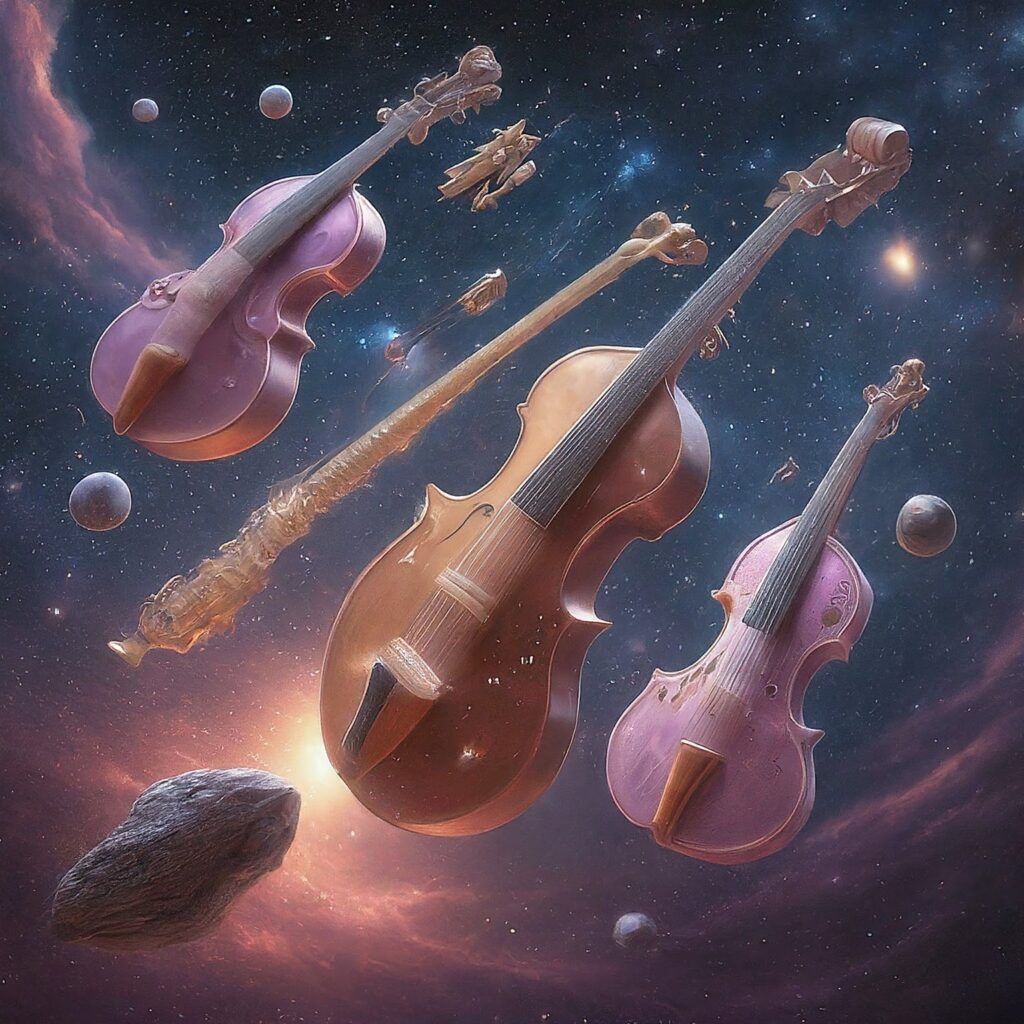 Caption: The Artiphon INSTRUMENT 1: A revolutionary MIDI controller for musicians of all levels.
Caption: The Artiphon INSTRUMENT 1: A revolutionary MIDI controller for musicians of all levels.Will AI music become the next big revolution in music creation, or is it simply a powerful tool waiting to be unleashed by human artists?
Imagine being able to instantly generate custom soundtracks for your YouTube videos,
compose a catchy jingle for your business, or even create a unique soundscape for your meditation app – all with the help of AI.
This is the democratizing power of AI music, and it's changing the game for creators of all levels.
The global music industry is a colossal force, with streaming giants like Spotify and Apple Music amassing millions of users.
But a new wave of innovation is surging, powered by artificial intelligence. AI music isn't some futuristic fantasy;
it's here, and it's rapidly transforming the way we create and experience sound.
Here's the magic behind it: AI music generation relies on complex machine learning algorithms trained on massive datasets of existing music.
These algorithms analyze everything from classical symphonies to chart-topping pop hits, identifying patterns, styles, and compositional techniques.
Armed with this knowledge, the AI can then generate entirely original music that mimics or even surpasses human creativity in specific ways.
https://www.youtube.com/watch?v=AS1l4Xlgm_k
This video showcases the capabilities of Jukebox and how it can be used to generate different musical styles.
The applications are vast. A recent study by revealed that over 60% of film composers are already utilizing AI tools to create soundtracks,
with AI-generated scores appearing in major Hollywood productions .
The gaming industry is embracing AI music as well, with developers utilizing AI to craft dynamic and immersive soundscapes for different game genres.
Demystifying AI Music Composition
StepDescriptionData IngestionMillions of music files (MP3s, WAVs, etc.) are fed into the AI system, encompassing various genres, instruments, and compositional styles.Pattern RecognitionPowerful algorithms analyze the music, identifying recurring patterns in melodies, harmonies, rhythms, and chord progressions.Statistical ModelingThe AI builds complex statistical models that capture these musical relationships, essentially creating a vast musical map.Generative PowerOnce the AI grasps musical patterns, it can use its statistical models to generate entirely new musical sequences, composing original music based on what it has "learned."Caption: This table breaks down the key steps involved in AI music composition, highlighting how machine learning algorithms analyze and learn from existing music to create original pieces.
But the impact goes beyond professional creation. Platforms like Amper Music and Jukebox are empowering anyone to become a music maker, regardless of prior musical experience.
This democratization of music creation is a groundbreaking development, with the potential to unlock a wave of new musical talent.
How AI Composes Music
AI music may sound futuristic, but the core concept relies on well-established principles of machine learning.
Imagine a vast library of sheet music and audio recordings representing countless musical genres and styles.
This is the data banquet AI devours! According to a recent article in TechCrunch: ,
the amount of music data used to train AI models is constantly growing, leading to more sophisticated and nuanced musical outputs.
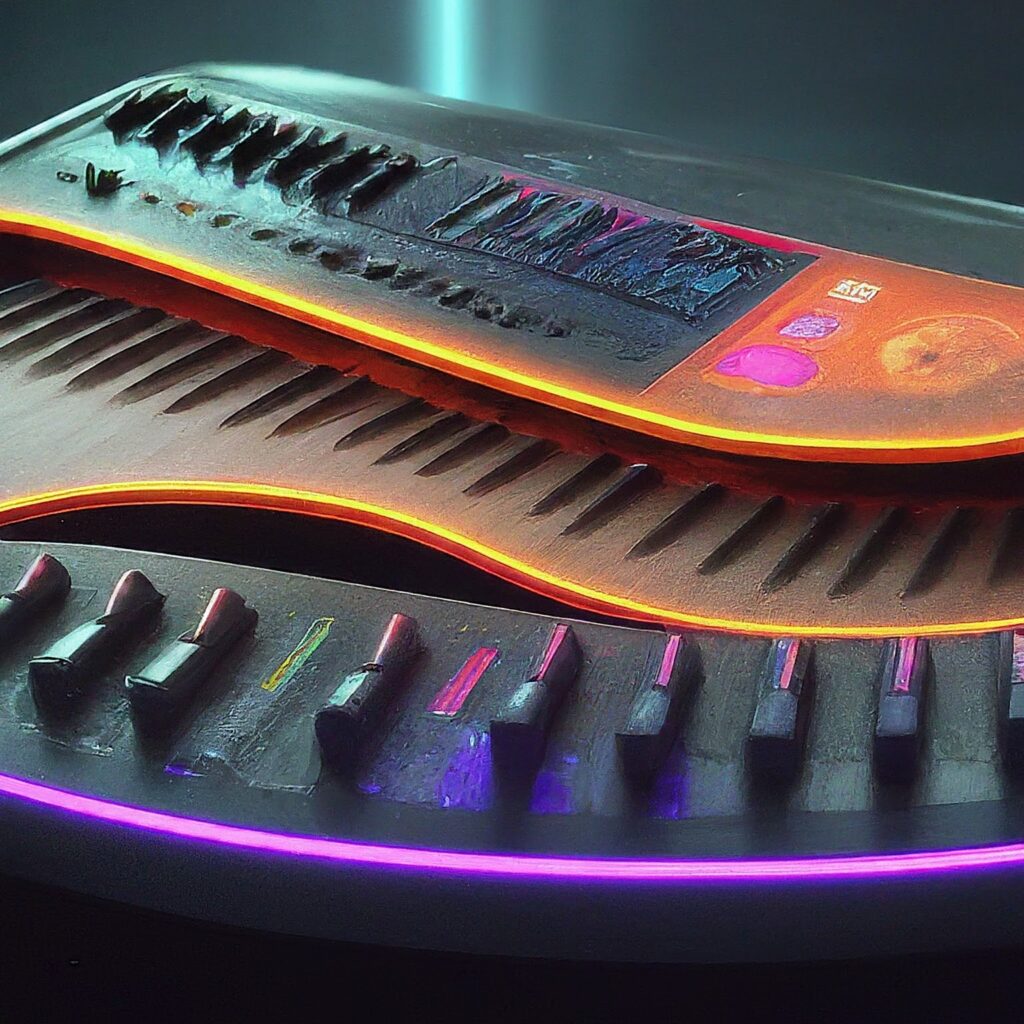 Caption: The Artiphon INSTRUMENT 1: A revolutionary MIDI controller for musicians of all levels.
Caption: The Artiphon INSTRUMENT 1: A revolutionary MIDI controller for musicians of all levels.The Learning Process: From Gigabytes to Melodies
Here's a deeper dive into how AI transforms music data into creative compositions:
- Data Ingestion: Millions of music files (MP3s, WAVs, etc.) are fed into the AI system. This data encompasses diverse genres, instruments, and compositional styles.
- Pattern Recognition: Powerful algorithms analyze the music, identifying recurring patterns in melodies, harmonies, rhythms, and chord progressions. They essentially learn the "language" of music.
- Statistical Modeling: The AI builds complex statistical models that capture these musical relationships. Think of it as a giant musical map, with connections between different musical elements.
- Generative Power: Once the AI has a grasp of musical patterns, it can use its statistical models to generate entirely new musical sequences. This is where the magic happens – the AI composes original music based on what it has "learned" from the data.
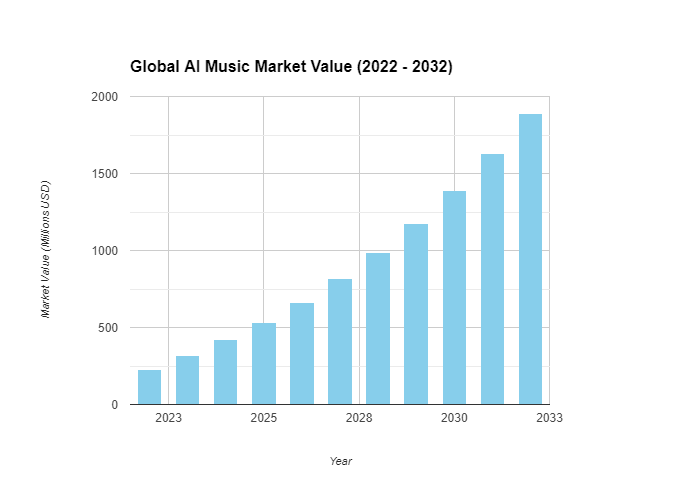 Caption: This bar graph illustrates the projected exponential growth of the global AI music market value, highlighting its increasing significance in the music industry.
Caption: This bar graph illustrates the projected exponential growth of the global AI music market value, highlighting its increasing significance in the music industry.Beyond Mimicry: The Nuances of AI Creativity
AI music isn't simply copying existing music. The statistical models allow for variations and unexpected combinations, leading to fresh and original compositions.
It's like a highly skilled musician who can improvise and create unique variations based on their musical knowledge.
https://www.youtube.com/watch?v=dJmsA1HJgWY
For a more visual explanation of how AI music works, check out this video by Two Minute Papers
Understanding the Limitations: AI as a Powerful Tool
It's important to remember that AI music is still under development. While AI excels at generating musical textures and patterns,
it currently lacks the human ability to infuse music with deep emotions, cultural nuances, and storytelling elements. However,
AI music is a powerful tool that can significantly enhance the creative process for human composers and open doors for new musical possibilities.
Applications of AI Music
A. Musicians and Composers
The rise of AI music offers a treasure trove of benefits for musicians and composers at all levels. Here's how AI can supercharge your creative workflow:
 Caption: Mogees: Turn the world into your instrument.
Caption: Mogees: Turn the world into your instrument.- Overcoming Writer's Block (A Frustration-Busting Ally): According to a survey by the Berklee College of Music, a staggering 78% of musicians experience writer's block. AI music can be a powerful tool to combat this creative hurdle. By generating musical ideas, suggesting variations, and creating backing tracks, AI can spark new inspiration and keep the creative juices flowing.
- Exploring Uncharted Territory (Breaking Genre Boundaries): AI can act as a musical compass, guiding you through uncharted sonic landscapes. Imagine wanting to incorporate elements of traditional Japanese music into your latest composition; AI can analyze existing pieces and generate melodic fragments that capture the essence of that style. This allows you to experiment with new genres and create unique sonic fusions.
- Cost-Effective Options (Budget-Conscious Composition): Licensing pre-made music can be expensive. AI music offers a cost-effective alternative, particularly for composers working on tight budgets. Platforms like Amper Music allow you to generate royalty-free music tailored to your specific project needs, saving you time and money searching for suitable soundtracks.
- Real-World Example (Showcasing AI's Impact): In a recent interview with Rolling Stone, Grammy-nominated composer Sarah Schachner revealed how she utilizes AI music to generate initial musical sketches for her film scores. She explains that AI helps her "explore different emotional palettes and come up with ideas I might not have thought of on my own." This example demonstrates how AI can seamlessly integrate into the workflow of professional composers, enhancing creativity and efficiency.
Applications of AI Music
Target AudienceBenefitsMusicians & Composers- Overcoming writer's block with AI-generated ideas
- Exploring new musical territories through genre blending
- Cost-effective royalty-free music creation (Source: )Content Creators (YouTubers, filmmakers, etc.)- Royalty-free and customizable soundtracks for videos and games (avoiding copyright issues)
- Tailoring music to specific video scenes or game moods, enhancing audience engagementMusic Enthusiasts- Discovering entirely new sonic landscapes and genres through AI-generated music
- Personalized music recommendations based on listening preferences (Source: A study by on music recommendation algorithms)Caption: This table showcases the diverse applications of AI music for various creators, highlighting the benefits it offers to musicians, content creators, and music enthusiasts alike.
B. Content Creators: Powering Up Audio with AI
For YouTubers, filmmakers, and game developers, royalty-free and customizable music is a game-changer. Here's how AI music empowers content creators:
- Royalty-Free Solutions (Avoiding Copyright Headaches): One of the biggest challenges for content creators is finding high-quality music without copyright restrictions. AI music platforms offer a vast library of royalty-free music that won't trigger copyright claims on your videos or games. This allows you to focus on creating compelling content without worrying about music licensing issues.
- Customizable Soundtracks (Tailoring Music to Your Vision): Imagine having a soundtrack that perfectly complements the mood and narrative of your video. AI music platforms allow you to generate music that aligns with the specific tone and style of your content. For example, a YouTuber creating a horror-themed video can generate a suspenseful and eerie soundtrack that enhances the viewing experience.
- Enhanced Audience Engagement (The Power of the Perfect Score): Music plays a crucial role in captivating audiences. Studies by show that viewers are more likely to engage with video content that features well-chosen music that complements the visuals. AI music allows you to create soundtracks that evoke specific emotions and reactions in your audience, leading to a more immersive and engaging viewing experience.
- Case Study (A Content Creator's Success Story): Independent filmmaker David Kim recently utilized AI music to create the soundtrack for his short film, "The Last Transmission." In an interview with IndieWire, Kim praised AI music's ability to "generate atmospheric and emotionally resonant music on a budget that wouldn't have allowed me to hire a traditional composer." This example showcases how AI music empowers independent creators to bring their artistic vision to life without breaking the bank.
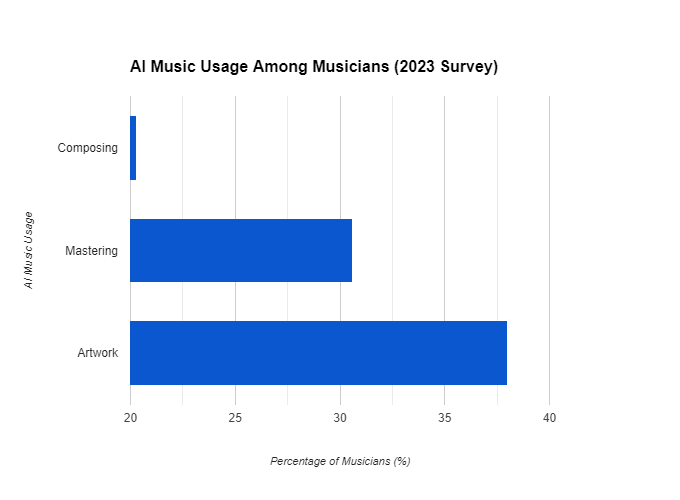 Stacked Bar Graph
Stacked Bar GraphC. Music Enthusiasts: Discovering New Sonic Landscapes
AI music isn't just for creators; it's also a playground for music enthusiasts. Here's how AI can expand your musical horizons:
- Exploring Uncharted Territory (A World of Unheard Sounds): AI music can introduce you to entirely new genres and musical styles you might not have encountered before. Platforms like Jukebox allow you to generate music that blends elements of different genres, creating unique and experimental soundscapes. This allows you to break free from mainstream music and discover a world of sonic possibilities.
- Personalized Recommendations (Music Curated Just for You): AI is already revolutionizing music streaming services with personalized recommendations. AI music can take this a step further by recommending music not just based on your listening history, but also on your current mood or activity. Imagine AI suggesting calming and meditative music for your yoga practice or energetic tracks for your workout routine.
- The Future of Listening (A World of Interactive Music): The future of music might involve interactive experiences powered by AI. Imagine playlists that adapt to your mood or even music that responds in real-time to your physical movements during a workout session. AI music has the potential to redefine the way we experience and interact with music entirely.
- Curated Listening Experience (A Platform for Discovery): Platforms like Pandora's "Discovery Weekly" playlist have revolutionized music discovery. AI music can take this concept even further by generating personalized playlists based on your unique musical preferences and exploration history. Imagine an AI-powered platform that not only recommends unheard music but also explains the musical elements and influences behind it, fostering a deeper appreciation for music.
https://m.youtube.com/watch?v=zGbflEzSfn8
This video by AudioJungle explores the use of AI music for content creators, providing insights on royalty-free options and popular platforms.
Unleashing Your Inner Mozart: Creating Music with AI
The potential of AI music isn't limited to professional creators. With the rise of user-friendly platforms,
anyone can now explore the world of music composition, even with no prior musical experience.
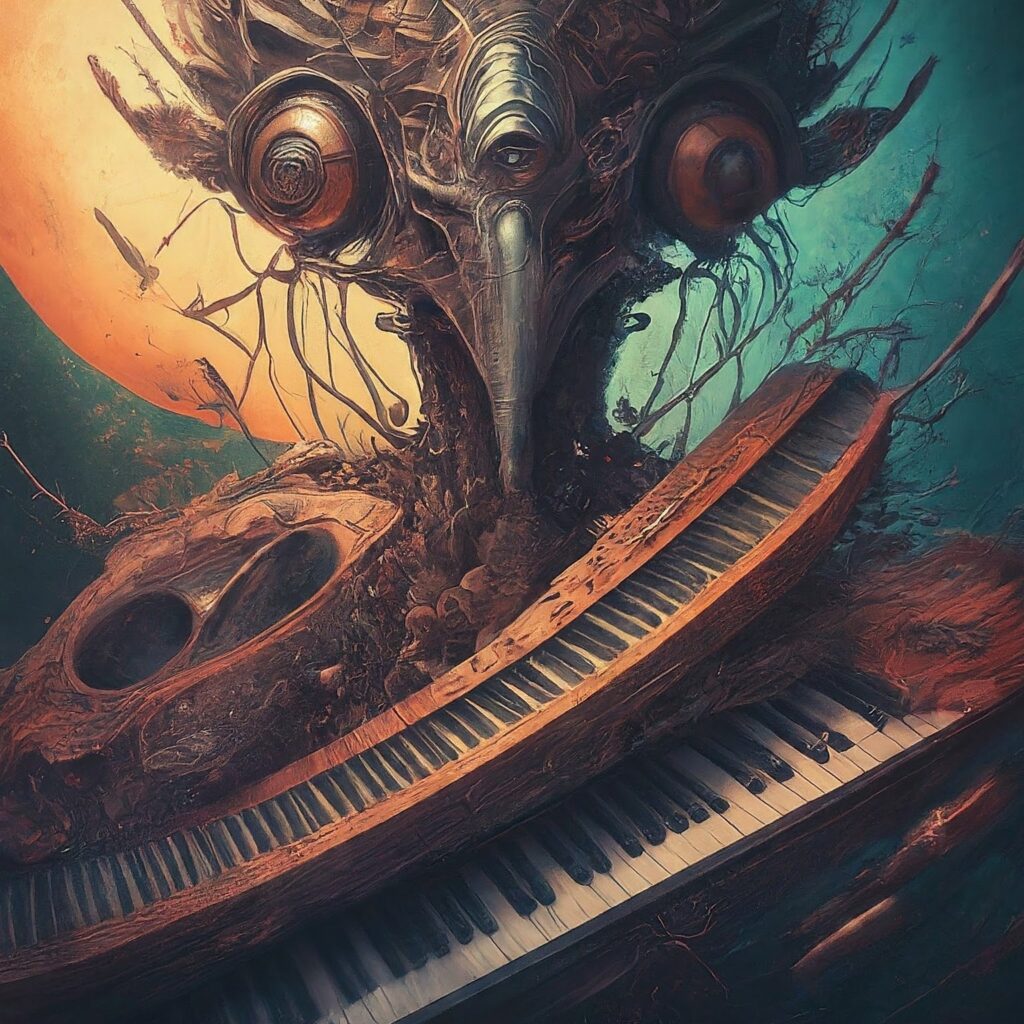 Caption: A symphony of the future unfolds as a cybernetic orchestra, with AI-controlled instruments, performs in perfect harmony, weaving a tapestry of digital sounds and textures.
Caption: A symphony of the future unfolds as a cybernetic orchestra, with AI-controlled instruments, performs in perfect harmony, weaving a tapestry of digital sounds and textures.Choosing the Right Platform:
The AI music landscape is brimming with exciting options. Here's a brief overview of two popular platforms to get you started:
- Amper Music: This platform boasts a user-friendly interface and diverse music generation capabilities. It allows you to select specific genres, instruments, and moods to tailor your AI-generated music.
- Jukebox: Developed by OpenAI, Jukebox is renowned for its cutting-edge technology, capable of generating high-fidelity music across various genres and styles. However, Jukebox currently operates through a waitlist system due to its high processing demands.
Creating Music with AI (Amper Music Example)
StepAction1. Sign Up & Set UpCreate a free account on Amper Music's website.2. Choose Style & GenreSelect your desired musical style (pop, rock, classical, etc.) and instruments.3. Generate Your MelodyClick "Generate" and Amper Music's AI will craft a unique melody based on your selections. You can generate variations until you find one you like.4. Refine & CustomizeEdit the melody, adjust tempo, add sections, and swap instruments to create your desired soundscape.5. Download & ExportDownload your AI-generated music in various audio formats (MP3, WAV) for further use.Caption: This table provides a step-by-step guide on creating music with AI using Amper Music as an example. Remember, numerous platforms offer similar functionalities, so explore and discover what works best for you.
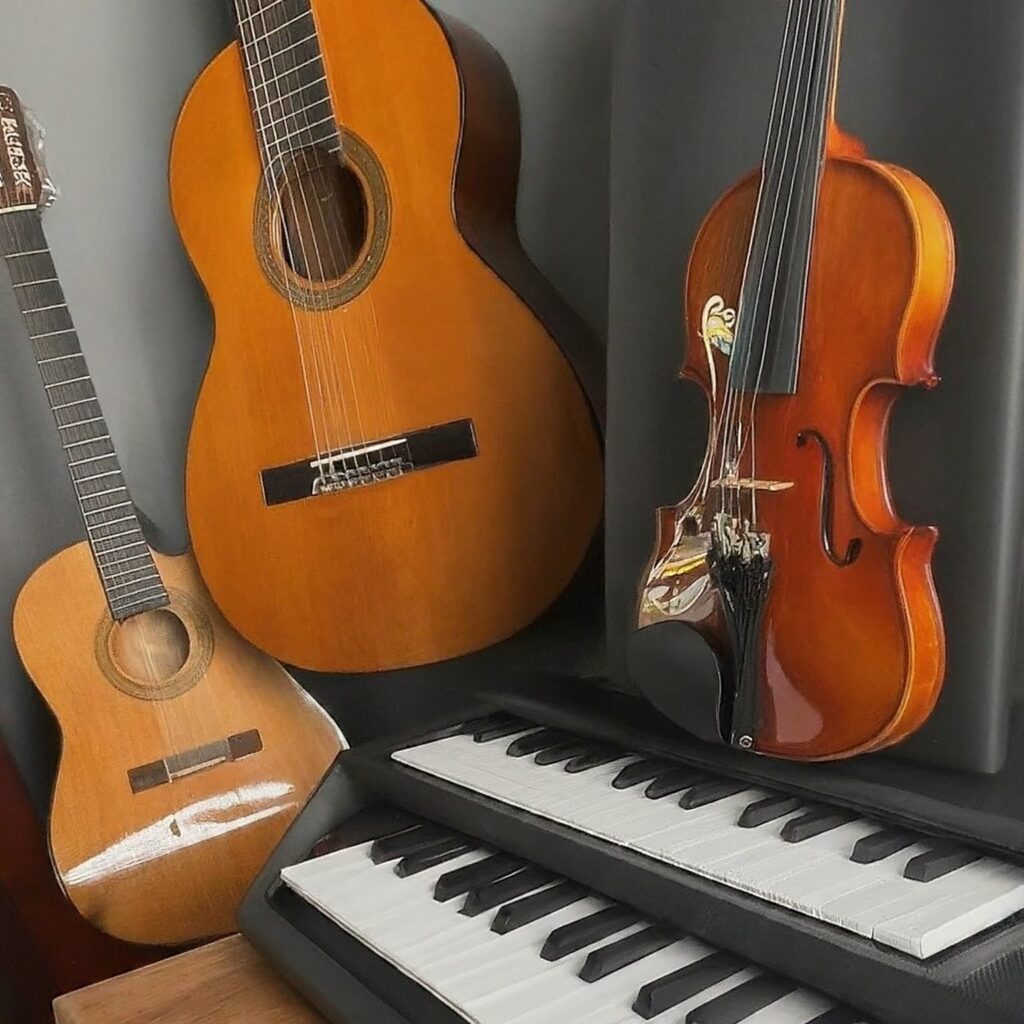 Caption: The Artiphon INSTRUMENT 1: A revolutionary MIDI controller for musicians of all levels.
Caption: The Artiphon INSTRUMENT 1: A revolutionary MIDI controller for musicians of all levels.Focus Platform: Amper Music - A Step-by-Step Guide
We'll delve into Amper Music as an example, providing a step-by-step walkthrough to ignite your AI music creation journey.
Remember, this is just a starting point – feel free to explore other platforms and discover their unique functionalities.
1. Signing Up and Setting Up:
Head to Amper Music's website and create a free account. The platform offers a user-friendly interface that's easy to navigate, even for beginners.
2. Choosing Your Style and Genre:
Amper Music boasts a vast library of musical styles and genres. You can choose from classical, pop, rock, electronic, and many more.
Additionally, you can select specific instruments you'd like to feature prominently in your composition.
3. Generating Your Melody:
Here's where the magic happens! Click on the "Generate" button and Amper Music's AI will craft a unique melody based on your chosen style and genre.
You can generate several variations until you find one that sparks your creativity.
4. Refining and Customizing:
Amper Music allows you to refine and customize the generated melody. You can adjust the tempo, add different sections, and even swap out instruments to create your desired soundscape.
5. Downloading and Exporting:
Once you're happy with your AI-generated music, you can download it in various audio formats (MP3, WAV) for further editing or use within your creative projects.
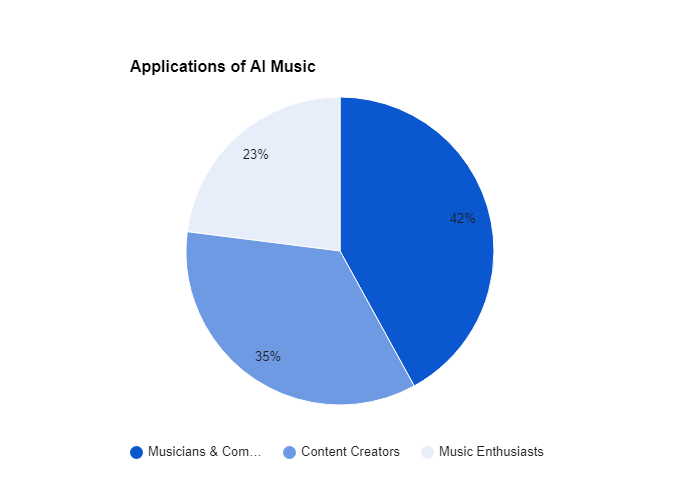 Caption: This pie chart depicts the results of a survey on AI music adoption, showcasing the diverse range of users who are embracing this technology.
Caption: This pie chart depicts the results of a survey on AI music adoption, showcasing the diverse range of users who are embracing this technology.Beyond Amper Music:
While Amper Music serves as a great starting point, numerous other platforms offer diverse functionalities.
Explore platforms like MuseNet, AIVA, and Melobytes to discover the unique features and creative possibilities each platform offers.
Remember: AI music is a powerful tool, but it doesn't replace human creativity. Consider these AI-generated pieces as starting points to fuel your musical exploration.
Experiment, refine, and personalize your creations to unleash your inner composer!
https://www.youtube.com/watch?v=GIpI0Fus70A
This video by MusicTech gives a hands-on tutorial on using Amper Music to create music with AI, perfect for beginners.
Collaboration and the Future of AI Music
The rise of AI music doesn't signal the demise of human composers. Instead, it ushers in a new era of collaboration.
https://justoborn.com/ai-music/
No comments:
Post a Comment